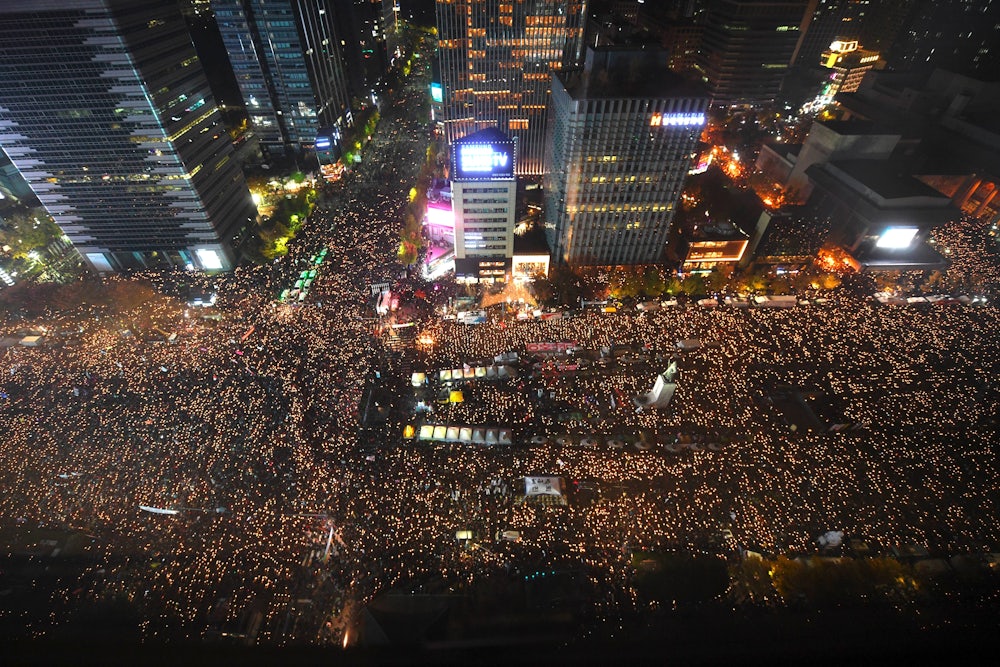This weekend’s rally in Seoul calling on Park to resign was the largest mass gathering since the 1987 protests that ended military dictatorship and ushered in free and independent elections. That symbolism was not lost on anyone, considering Park’s rise was in large part powered by a nostalgic septuagenarian base that regarded her as the natural heir to her autocratic father, military dictator Park Chung-hee. But even the conservative older generation has lost faith in her.
Organizers estimated the gathering at one million people, while police conservatively put the number at 260,000. Whatever the figure, the streets were crowded with protesters from the early afternoon on Saturday, and swelled in number as the march kicked off at 4pm. By evening, a sea of candles in aerial photographs and videos showed the massive scale of the gathering. It was obvious that those who have long critiqued Park’s policies, including the country’s labor unions, farmers, and civil society organizations, had been joined by tens of thousands of ordinary citizens, many of whom were protesting for the first time.
While some have been taken by surprise at the swift public reckoning that Park has had to face in the wake of the Choi Soon-sil corruption scandal, others see it as the culmination of years of disappointment and anger at Park’s broken campaign promises, her style of governing, and her stifling of dissent. The scandal has also engulfed conglomerates like Posco, Samsung, and CJ, which were either pressured by presidential aides to fire staff or donate to Choi’s foundations.
It is apparent that many are fed up with the political and economic cronyism that Park and her father made a core part of the presidential office. While no one on the opposition has emerged as a clear figure to replace Park, the fervor for her impeachment and resignation shows no signs of abating soon.
